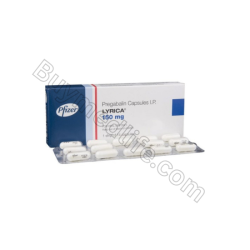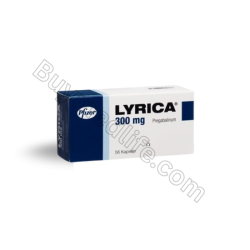Pacitane 2mg | Trihexyphenidyl | Treat Parkinson’s Disease

- Stock: In Stock
- Brand: Pfizer Ltd
- Model: Pacitane 2
- SKU: PCT2
- Active Ingredient: Trihexypheni
- Treatment: Parkinson’s di
- Alcohol: Don't Drink
- MPN: P4T54N24
Available Options
Pacitane 2mg, Uses, Dosages, Side Effects, Precautions, Etc
What is Pacitane 2mg?
Your doctor prescribes you a medication called Pacitane 2mg. Pacitane is a generic version of the brand-name medication Artane. It's an anticholinergic medication, which means that it works by blocking the effects of a neurotransmitter called acetylcholine. Acetylcholine plays a role in movement control, so by blocking its effects, Pacitane can help to improve movement in people with Parkinson's disease.
Pacitane 2mg is available in tablet form. It's typically taken three times a day, with or without food. The dosage of Pacitane will vary depending on the individual's needs and the condition being treated.
Pacitane is generally safe and effective for most people. However, it can cause some side effects, such as dry mouth, blurred vision, dizziness, constipation, nausea, and headache. Less common side effects include confusion, hallucinations, seizures, and difficulty urinating.
Uses of Pacitane 2mg
Pacitane 2mg is used to treat the following conditions:
Parkinson's disease:
Parkinson's disease is a neurodegenerative disorder that affects the central nervous system. It causes tremors, stiffness, and difficulty with movement.
Drug-induced movement disorders:
Drug-induced movement disorders are caused by certain medications, such as antipsychotics. They can cause a variety of movement problems, such as restlessness, involuntary movements, and muscle spasms. Restless legs syndrome: Restless legs syndrome is a neurological disorder that causes an irresistible urge to move the legs, especially at night.
Tardive dyskinesia:
Tardive dyskinesia is a movement disorder that can develop as a side effect of long-term use of antipsychotic medications. It causes involuntary movements of the face, tongue, and limbs.
Akathisia:
Akathisia is a movement disorder that causes a feeling of restlessness and an inability to sit still. It can be a side effect of certain medications, such as antipsychotics and antidepressants.
Pacitane 2mg is also sometimes used to treat other conditions, such as dystonia, tremor, and myoclonus. However, it is not as effective for these conditions as it is for the conditions listed above.
Dosages of Pacitane 2mg
The dosage of Pacitane 2mg will vary depending on the individual's needs and the condition being treated. The usual starting dosage for adults is 1mg taken three times a day. However, some people may need to take more or less than this dosage.
Your doctor will start you on a low dose and increase it gradually until you find the dosage that works best for you. It is important to take Pacitane 2mg exactly as prescribed by your doctor.
Here are some tips for taking Pacitane 2mg:
- Take Pacitane 2mg with or without food.
- Avoid taking Pacitane 2mg with alcohol.
- If you miss a dose, take it as soon as you remember.
However, if it is almost time for your next dose, skip the missed dose and continue with your regular dosing schedule. Do not double up on doses. If you have any questions or concerns about the dosage of Pacitane 2mg, talk to your doctor or pharmacist.
Benefits of Pacitane 2mg
Pacitane 2mg can help to improve movement in people with Parkinson's disease and drug-induced movement disorders.
Here are some of the benefits of Pacitane 2mg:
- It can improve movement and coordination. Pacitane 2mg can help to reduce tremors, stiffness, and difficulty with balance in people with Parkinson's disease.
- It can also help to improve muscle control and reduce involuntary movements in people with drug-induced movement disorders.
- It can relieve symptoms of restless legs syndrome. Pacitane 2mg can help to reduce the urge to move the legs and improve sleep quality in people with restless legs syndrome.
- It is relatively safe and well-tolerated. Pacitane 2mg is generally safe and well-tolerated for most people.
However, it can cause some side effects, such as dry mouth, blurred vision, dizziness, constipation, nausea, and headache. Less common side effects include confusion, hallucinations, seizures, and difficulty urinating. It is relatively affordable. Pacitane 2mg is a relatively affordable medication.
Side effects of Pacitane 2mg
The most common side effects of Pacitane 2mg are mild and go away on their own. They can include:

- Dry mouth
- Blurred vision
- Dizziness
- Constipation
- Nausea
- Headache
Less common side effects include:
- Confusion
- Hallucinations
- Seizures
- Difficulty urinating
- Precautions of Pacitane 2mg
Pacitane 2mg should be used with caution in people with certain medical conditions, such as heart disease, glaucoma, and urinary problems. It should also be used with caution in older adults and people with liver or kidney problems.
Warnings of Pacitane 2mg
Pacitane 2mg can cause drowsiness and dizziness. Therefore, you should avoid driving or operating machinery while taking Pacitane 2mg. Pacitane 2mg can also interact with other medications. Therefore, it is important to tell your doctor about all the medicines you are taking before starting Pacitane 2mg.
Storage of Pacitane 2mg
Pacitane 2mg tablets should be stored at room temperature, away from light and moisture. Keep out of reach of children and pets.
Here are some specific tips for storing Pacitane 2mg tablets:
- Store the tablets in their original container.
- Keep the container tightly closed.
- Store the container in a cool, dry place.
- Do not store the tablets in the bathroom or kitchen, as these areas can be humid.
- Do not store the tablets in direct sunlight.
- Do not store the tablets above 86 degrees Fahrenheit (30 degrees Celsius).
If you have any questions or concerns about storing Pacitane 2mg tablets, talk to your doctor or pharmacist.
FAQs
Q.) What is Pacitane 2mg?
Pacitane 2mg is a prescription medication used to treat Parkinson's disease and drug-induced movement disorders.
Q.) How does Pacitane 2mg work?
Pacitane 2mg works by blocking the effects of a neurotransmitter called acetylcholine. Acetylcholine plays a role in movement control, so by blocking its effects, Pacitane 2mg can help to improve movement in people with Parkinson's disease and drug-induced movement disorders.
Q.) What is the dosage of Pacitane 2mg?
The dosage of Pacitane 2mg will vary depending on the individual's needs and the condition being treated. The usual starting dosage for adults is 1mg taken three times a day. However, some people may need to take more or less than this dosage.
Q.) How long does it take for Pacitane 2mg to work?
Pacitane 2mg typically starts working within 30-60 minutes of taking it. However, it may take longer to see the full effects of the medication.
Q.) How long do the effects of Pacitane 2mg last?
The effects of Pacitane 2mg typically last for 4-6 hours.
Q.) Is Pacitane 2mg addictive?
Yes, Pacitane 2mg has the potential to be addictive, so it is important to use it as prescribed by your doctor.
Q.) What are the side effects of Pacitane 2mg?
The most common side effects of Pacitane 2mg are dry mouth, blurred vision, dizziness, constipation, nausea, and headache. Less common side effects include confusion, hallucinations, seizures, and difficulty urinating.
Q.) Who should not take Pacitane 2mg?
Pacitane 2mg should not be taken by people who are allergic to trihexyphenidyl or other anticholinergic medications, have severe liver or kidney disease, are pregnant or breastfeeding, or are taking certain other medications, such as MAO inhibitors.
Q.) Can I take Pacitane 2mg with alcohol?
No, you should not take Pacitane 2mg with alcohol. Alcohol can increase the side effects of Pacitane 2mg, such as dizziness and drowsiness.
Q.) Can I drive while taking Pacitane 2mg?
You should avoid driving or operating machinery while taking Pacitane 2mg, as it can cause dizziness and drowsiness.
Q.) How should I store Pacitane 2mg?
Pacitane 2mg tablets should be stored at room temperature, away from light and moisture. Keep out of reach of children and pets.
Q.) What should I do if I miss a dose of Pacitane 2mg?
If you miss a dose of Pacitane 2mg, take it as soon as you remember. However, if it is almost time for your next dose, skip the missed dose and continue with your regular dosing schedule. Do not double up on doses.
Q.) What should I do if I overdose on Pacitane 2mg?
If you overdose on Pacitane 2mg, seek medical attention immediately. Symptoms of an overdose may include drowsiness, confusion, slowed breathing, and coma.



